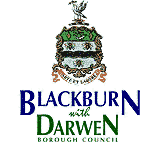






Key Stage 1 Rights, Rules & ResponsibilitiesAbout the Unit
Where the Unit fits in
ResourcesReturn to Key Stage 1 Framework
This unit has been designed to cover work in Year 1 & 2 and has been developed by Cambridgeshire County Council Trading Standards Service in conjunction with Cambridgeshire PSHE Service and all necessary teaching notes and activities can be accessed via the Ask CEdRIC website.
Making Rules
Children will learn about the meaning of the word 'rule'. They will learn to appreciate, why it is necessary to have rules in our lives and they will focus particularly on rules at home and in school.
They will also start to examine who is responsible for making rules in different situations and what can happen if different rules are not followed. They will consider the issue of fairness and start to think about how they can have their say in some rules that are created.
�
This unit addresses the following aspects of the non-statutory framework for PSHE and citizenship at key stage 1:
Developing confidence and responsibility and making the most of their abilities
Pupils should be taught:1a to recognise what they like and dislike, what is fair and unfair and what is right and wrong.
1b to share their opinions on things that matter to them and explain their views
Preparing to play an active role as citizens
Pupils should be taught:2a to take part in discussions with one other person and the whole class
2c to recognise choices they can make and recognise the difference between right and wrong
2d to agree and follow rules for their group and classroom, and understand how rules help them
2e to realise that people and other living things have needs, and that they have responsibilities to meet them
2f that they belong to various groups and communities, such as family and school
Developing good relationships and respecting the differences between people
Pupils should be taught:4a to recognise how their behaviour affects other people
4b to listen to other people and respect their differences and similarities
4c to identify and respect the differences and similarities between people
Breadth of Opportunities
During the key stage, pupils should be taught the Knowledge, skills and understanding through opportunities to:5a take and share responsibility [for example, for their own behaviour; by helping to make classroom rules and following them; by looking after pets well]
5g consider social and moral dilemmas that they come across in everyday life [for example, aggressive behaviour, questions of fairness, right and wrong, simple political issues, use of money, simple environmental issues.]
Vocabulary
Through the activities in this unit, children will be able to understand and use words relating to:
- Rules (fairness, punishment, behaviour, etc).
�
Ask CEdRIC provides links to all the resources you will need to teach this Unit.
Every suggested teaching area on the teaching plan is linked to:
- Teaching Notes
- Suggested Teaching Activities
- Suitable materials on other websites
You may also wish to speak to your own local Trading Standards Department for help and advice on Consumer Education. You can find your local office in the telephone directory or by typing in your School's postcode on the Trading Standards Institute website (www.tradingstandards.gov.uk/).
![]()
Blackburn with Darwen Borough Council, Trading Standards Service, 3-5
Salford, Blackburn, Lancashire BB1 6HG
Telephone:
(Consumer Advice) 08454 040506 (Trader Advice) (01254) 222502
Fax: (01254) 698312
Internet World Wide Web
http://www.tradingstandards.gov.uk
Electronic
Mail:
[email protected]
Copyright � Blackburn with Darwen 2007





